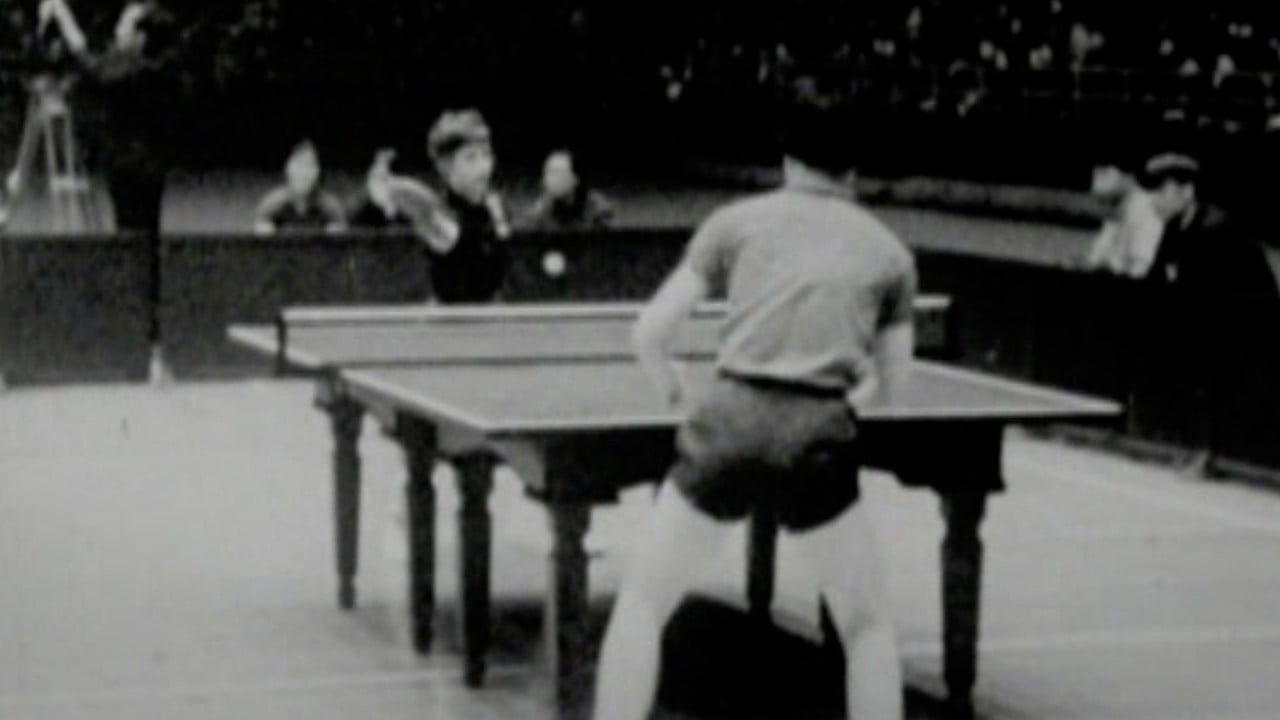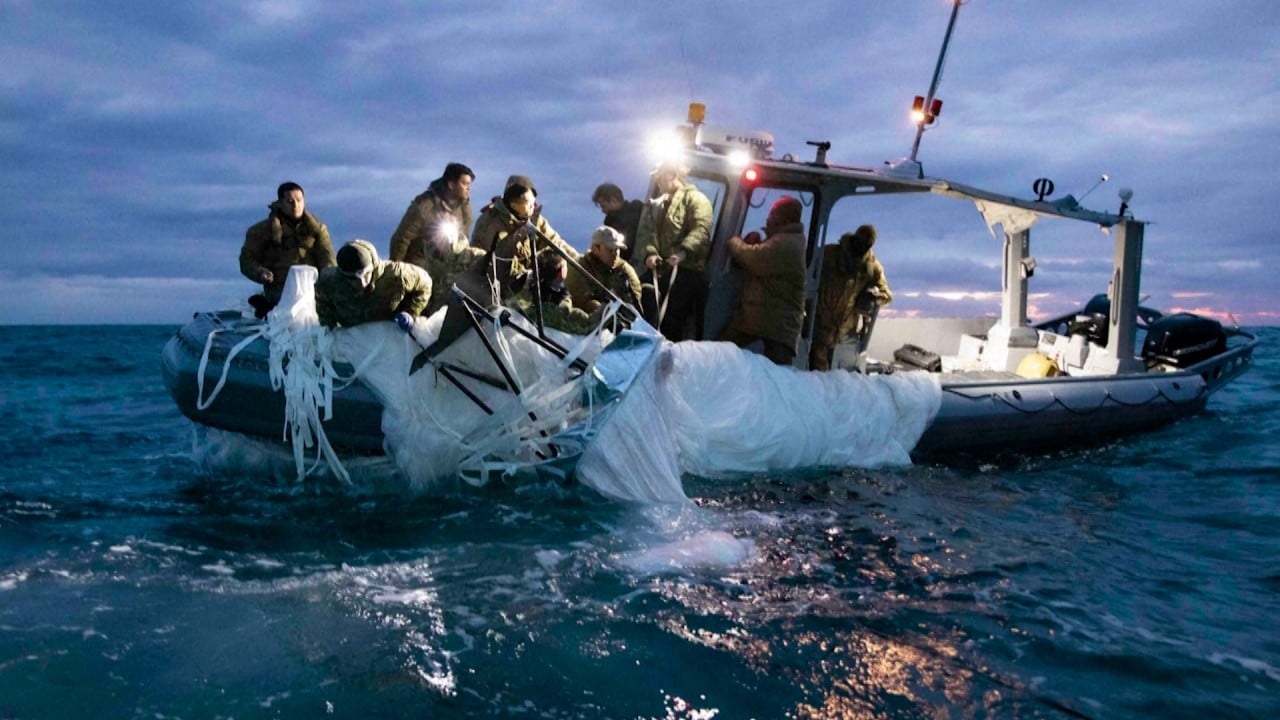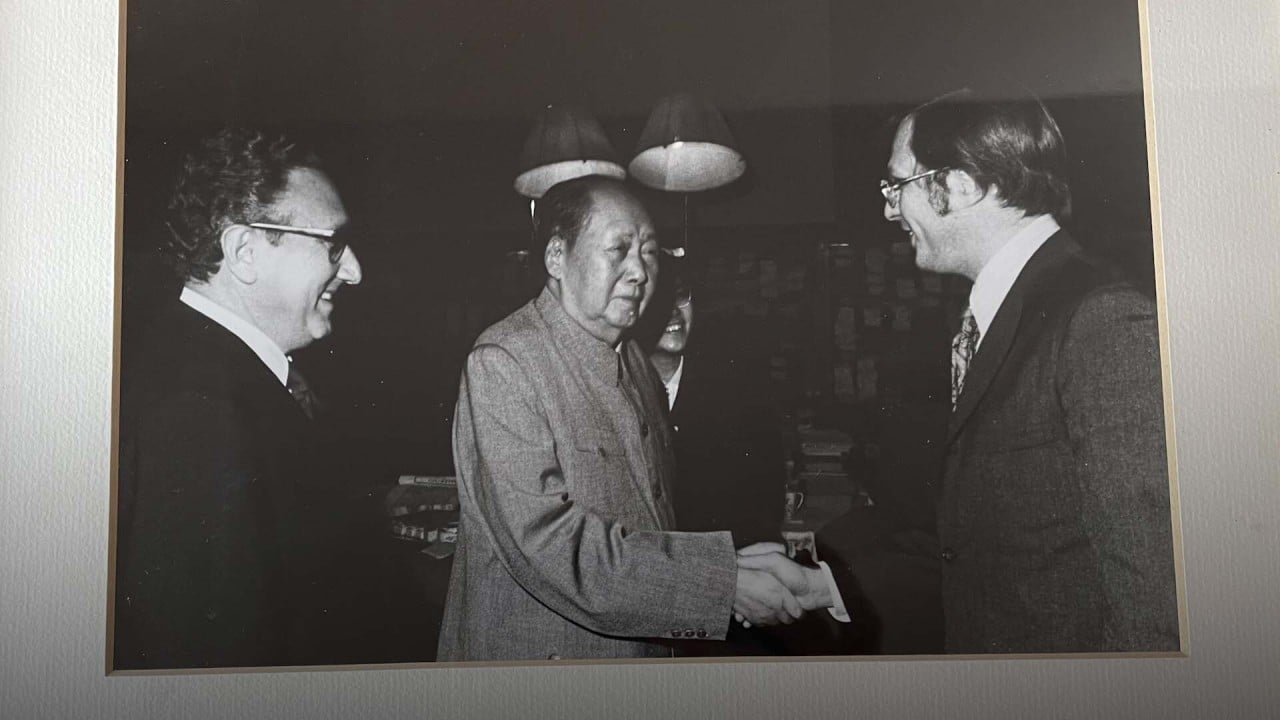
As US-China ties hit new lows, are diplomatic backchannels still effective?
- Backchannel diplomacy, such as Henry Kissinger’s trip to China after the Tiananmen crackdown in 1989, has played key role in stabilising relations
- However, analysts say without an alignment of interests against a shared rival, unofficial dialogues are losing their shine
The purported “fact-finding” trips, separate but within the space of two weeks, took place just months after the bloody Tiananmen Square crackdown but were made with the blessing of US President George H.W. Bush.
“We must build from here. If we could do it in ’72, we can do it now,” the former president told reporters after his meeting with Deng, according to The New York Times.
Chinese delegation talks with former US officials, executives
For the better part of the past five decades, backchannel diplomacy had played a “significant and indispensable” role in helping to stabilise the often tumultuous US-China ties, he said.
While Track 2 dialogues usually involve non-government representatives from academia and think tanks, Track 1.5 dialogues typically involve informal communications between government officials acting in an unofficial capacity along with other interlocutors.
According to Jessica Chen Weiss, a Cornell University professor and senior fellow at the Asia Society Policy Institute, unofficial dialogues are important for both Beijing and Washington to gain a better understanding of the other side’s perceptions.
“They also create space to explore potential understandings and terms on which both sides could reasonably coexist, bolstering traditional diplomacy at a time when official diplomatic re-engagements are seeking to gain traction and momentum,” she said.
Many have also been alarmed by the freezing of academic and people-to-people exchanges. In recent months, a growing number of scholars, think tanks and former government officials on both sides have worked to emulate Kissinger’s efforts to break the ice.
“The lack of face-to-face contact is not the source of tensions between their two countries, but it is an obstacle to stabilising ties, avoiding a crisis, and cooperating on bilateral issues and global challenges such as climate change and public health,” a pair of scholars – one Chinese and one American – warned in an article in Foreign Affairs magazine in April.
Return of behind-the-scenes diplomacy offers hope for US-China ties
The article was jointly written by Wang Jisi, an expert on the US at Peking University, and Scott Kennedy, an expert on Chinese business and economics with the Washington-based Centre for Strategic and International Studies.
Wang and Kennedy decided to visit the US and China, respectively, while China’s zero-Covid restrictions were in place to meet scholars and policy experts and write about their experiences. Kennedy travelled to China last autumn and Wang to the US twice in the spring and autumn of 2022.
In a report published afterwards titled “Breaking the Ice”, they identified self-reinforcing vicious cycles of worsening ties and “a sense of fatalism in both Beijing and Washington about the trajectory of ties”.
As part of Beijing’s efforts to stabilise ties, the visit was believed to be sanctioned by Chinese President Xi Jinping himself, and participants included former commerce minister Chen Deming and former Chinese ambassador to the US Cui Tiankai.
It was not the first time Beijing sought to boost backchannel diplomacy through unofficial conduits, such as Wall Street veterans Greenberg and former Goldman Sachs president John Thornton.
But Zhiqun Zhu, an international relations professor at Bucknell University, said it would be virtually impossible for Beijing to find a replacement for Kissinger to conduct effective backchannel diplomacy with Beijing in times of crisis.
Despite the mixed results from the Bush administration’s secret diplomatic efforts, pundits said Nixon and Kissinger were well-positioned to make the trips to China thanks to their influence in both Washington and Beijing.
“Indeed, Beijing does not have a close ally in Washington now who can help it to access the White House directly. To some, despite his diminishing influence or perhaps overrated role, Kissinger remains an intermediary between the two governments,” he said.
He noted there were “very few people” who could match Kissinger in this role or who would be willing to help Beijing now. “Perhaps Greenberg and [former treasury secretary] Hank Paulson are some of the other candidates, but none enjoys the high esteem and status of Kissinger in China,” he said.
After Shangri-La Dialogue fuelled the fire, what’s next for US-China relations?
Zhu Feng, an expert on US affairs at Nanjing University, said it would be wishful thinking to pin hopes on backchannel diplomacy, which would not be as effective as during the Nixon-Kissinger era in the 1970s.
“The era is gone when Washington needed Beijing to counterbalance Moscow. Although the US and China still share some common interests, Washington views Beijing as its biggest rival. So the strategic imperative behind the push for backchannel diplomacy is no longer there,” he said.
Despite Kissinger’s longevity and his relatively balanced views on China, Zhu doubted the US statesman would still have a big role to play in future US-China ties.
“Backchannel diplomacy is important in principle and it is still necessary to maintain contact and communication at all levels, but given the unanimous consensus on the US policy towards China, I don’t see how much difference those backchannels can make,” he said.
Yun Sun, a senior fellow at Washington’s Stimson Centre, also said it would be impossible to recreate the success Kissinger achieved 50 years ago.
“Backchannel diplomacy worked during the Kissinger era primarily because the US and China shared common interests vis-à-vis [the] Soviet Union. Without such strategic alignment of interests, mere backchannel diplomacy could not have achieved the rapprochement,” she said.
Sun said that for Beijing, the biggest issue was not the lack of conversations with Washington, but the bipartisan consensus in the US backing an anti-China policy shift.
“Exchanges do help to improve understanding and clarify issues. But currently the issue is not misunderstanding, but a fundamental distrust of each other as their most consequential threat and challenge by both US and China,” she said.
“To assume that exchanges can change things is to assume this perception by both countries is wrong. And that is a big assumption to make. Beijing doesn’t have as high an interest in resuming dialogues with the US because it does not bring benefits, and US hostile policies continue regardless of the dialogues.”
Sourabh Gupta, a senior fellow at the Institute for China-America Studies in Washington, said another reason backchannels might not work effectively was the change in China’s attitude.
Gupta said “hope was for the most part given up” at the highest echelons of Chinese leadership in the summer of 2019 after the failure of trade war negotiations, in which Xi had “vested a great deal of sincerity and political capital”.
He said backchannel diplomacy, which served as “the lubricant that helped grease good intentions and interests into tangible outcomes”, could no longer work because the two countries were each other’s rivals today.
“While these dialogues have contributed mightily in the past to narrow conceptual gaps between the two sides and build understanding, they have lost their vitality and utility as bilateral relations have nosedived over the past five years,” he said.
While unofficial dialogues on climate change and non-technology commercial exchanges might still be useful in exploring common interests and potential for cooperation, Gupta said the role of the Track 1.5/2 mechanisms were largely ineffective for contentious issues concerning defence and technology.
But according to Gupta, another form of backchannel diplomacy, similar to Nixon and Kissinger’s visits in 1989, could prove increasingly important with the deterioration of bilateral ties.
“To the extent that backchannel diplomacy is conducted by interlocutors who are known by the other side to be very close to senior decision-makers, such engagement will continue to have utility,” he said.
Citing Cui’s meeting with US deputy secretary of state Wendy Sherman and other officials with the State Department’s new “China House” unit during a trip to Washington in the spring, Gupta said those dialogues could have “real value to both sides”.
At 100, Kissinger still seen as influential ‘old friend’ in China
Last June and July, the Centre for China and Globalisation, a government-linked think tank in Beijing, organised a 10-day tour of Washington and New York in a bid to promote the resumption of face-to-face scholarly exchanges.
Its founder and president, Wang Huiyao, a former Chinese government official, said the in-person exchanges with nearly a dozen US think tanks, including CSIS and the Brookings Institution, were still of some significance in clarifying misperceptions and misconceptions.
“We became the first Chinese think tank delegation to visit the US in over two years, which came at the height of China’s Covid-related controls. It set an example of how non-governmental groups could help break the impasse between the two countries, more or less similar to what Kissinger did in the 1970s,” he said.
While he admitted it would be hard to replicate Kissinger’s groundbreaking success, Wang said the value of unofficial exchanges should not be underestimated.
A report commissioned by the US-China Economic and Security Review Commission last year urged the Pentagon to reestablish Track 1.5 and 2 military dialogues with China to manage the growing risks of mishaps and miscalculations.
Gupta also agreed that backchannel diplomacy, though it might have lost its shine, would still be useful in preventing the worst-case scenarios.
“There is recognition at Beijing’s end that China – to serve its own geopolitical and development interests – needs to forge the ‘least worst’ relationship with the US, lest bilateral ties hurtle to the point of total breakdown.”







